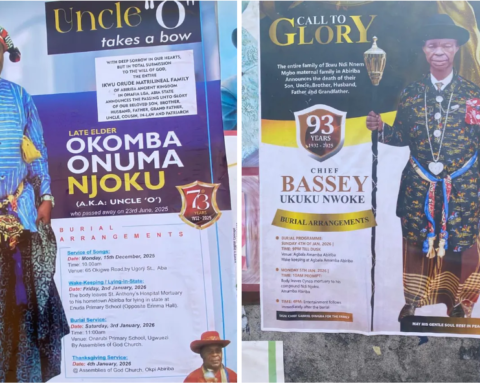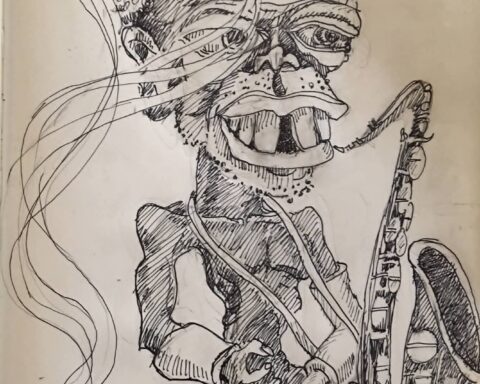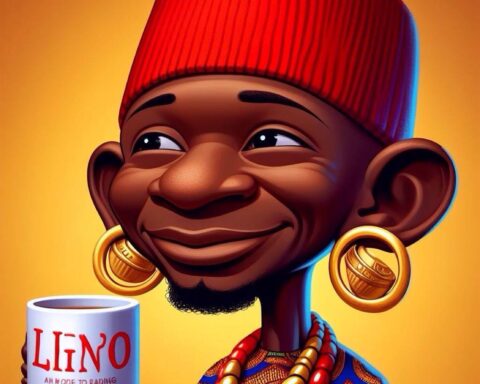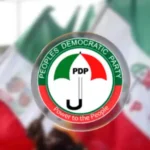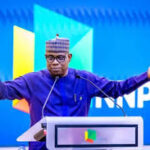Former Chairman of the Inter Party Advisory Council, High Chief Peter Ameh has dismissed arguments that President Bola Tinubu cannot be defeated in 2027 given his poor scorecard on all indices of performance and assessment of leaders.
In a frank no-holds- barred interview with VDCInsights, Ameh argued that the President and his supporters were already in panic mode as can be seen from his abandoning governance in just his second year to focus on campaigns for re-election.
He highlighted a number of reasons why the President can be roundly defeated in 2027 to include ‘the administration’s poor economic management, worsening poverty, and failure to address worsening insecurity.’
Ameh further argued that ‘promises made by President Tinubu to boost agriculture and attract foreign investments have not materialized, while citizens face suffocating inflation, hunger, and fear of insecurity.’
He pointed out, ‘Look at agriculture: the President promised to cultivate 500,000 square kilometers of farmland. Where are the results? Where are the tractors he claimed to import from Belarus?
‘On foreign trips, he spends heavily on luxury without attracting meaningful foreign direct investment. Investors won’t come when there’s no guarantee of safety. Compare this to Ghana — in Accra, foreigners walk freely, but in Abuja, there are areas unsafe even at midnight.
The Political Party Management strategist also highlighted the government’s reluctance to act against terrorism sponsors, despite government having a report on the people involved right from Buhari’s tenure, and wondered why such a person cannot be defeated in an election that is free and fair.
According to him,these are issues that speak for or against his ambition to return even as he has failed in the first term so far . ‘So, unless the President changes course, I don’t see a path for his return in 2027.’
On electoral reform, he called for unbundling INEC, ‘we just have to unbundle INEC because they have so much and have not shown competence and ability to deliver on their mandate’
Part of the reforms we want to see with INEC include ‘removing presidential influence in appointing its leadership, saying no to former aides of those in power being appointed as INEC Commissioners or Chairman,’ remove the powers to register political parties from INEC and prosecution of electoral offenders .
Ameh stressed that Nigeria’s future depends on strong institutions, credible elections,active civic responsibility, and empowering citizens through active participation to safeguard our democracy
Here is part of the interview:
VDCInsights: Can President Tinubu be defeated in 2027?
Ameh: This situation is arising for the first time: a sitting president, just two years into his administration, already struggling to justify why he deserves a second term in 2027. What does this say about the state of governance?
It shows clearly that President Tinubu has poorly managed both the economy and the political environment. People are already desperate to see him leave office through the ballot box. If he were truly a purposeful leader, he would be on the streets listening to Nigerians — seeing the poverty, the hunger, the inflation eating deep into people’s pockets.
Ordinary citizens can no longer afford three square meals. The middle class has been wiped out. Survival has become unbearable. On security, government reports may paint a picture of stability, but the reality is different. People cannot travel safely. In Zamfara, for instance, bandits negotiate so-called peace deals with security agencies, release kidnap victims, and face no consequences.
Look at agriculture: the President promised to cultivate 500,000 square kilometers of farmland. Where are the results? Where are the tractors he claimed to import from Belarus? On foreign trips, he spends heavily on luxury without attracting meaningful foreign direct investment. Investors won’t come when there’s no guarantee of safety. Compare this to Ghana — in Accra, foreigners walk freely, but in Abuja, there are areas unsafe even at midnight.
So, unless the President changes course, I don’t see a path for his return in 2027.
VDCInsights: Why has it been so difficult to deal with insecurity, even after nearly 20 years?
Ameh: The problem is not ignorance. During Buhari’s time, Major General Aliyu Gusau (and others) confirmed that a list of terrorism sponsors was submitted to the government. Nothing was done. Even government officials themselves admitted they knew the sponsors.
So the question is: why the silence? Is it because of the huge budgets allocated to national security? Is money meant for security actually fueling insecurity? Oversight by the National Assembly is weak, almost nonexistent. Our borders, especially in the north, are extremely porous. People cross from Chad or Niger, and within days, claim Nigerian identity. Arms are smuggled in freely.
Until government redesigns the security architecture, blocks these inflows, and ensures kidnappers face real consequences, insecurity will persist. Today, if you call a politician a criminal, DSS responds quickly. But when people are kidnapped, security agencies drag their feet. Too often, they serve the interests of those in power, not the people.
VDCInsights : Is it possible to have security agencies that serve the people, not the President?
Ameh: Yes, but only if we fix our electoral system. Strong elections produce strong institutions. Right now, the National Assembly is spineless — beholden to the executive, approving funds without oversight. Their role should be to check recklessness in government, not rubber-stamp it.
VDCInsights : Some argue that reforming INEC is not enough; the problem is also about who is appointed as chairman.
Ameh: Both are true. INEC needs reform, and its leadership must be nonpartisan and of proven character. Today, we have people with political interests serving as commissioners. That undermines credibility.
We also need to unbundle INEC. Right now, it handles too much, conducting elections, registering parties, delineating constituencies, monitoring primaries, even handling electoral offenses. Past reform panels, Justice Uwais (2008), Justice Lemu (2011), Ken Nnamani (2017) all recommended restructuring. INEC should focus solely on elections. Other bodies should manage political parties and prosecute electoral offenses.
On appointments, we must move away from the President nominating INEC leadership. That creates bias, like a player choosing the referee. Instead, the National Assembly, through a transparent process, should nominate and confirm. That will strengthen independence.
VDCInsights: Even when laws exist, courts sometimes make the Electoral Act irrelevant.
Ameh: True. That’s why democracy must rest on the participation of citizens. People must vote, stay, and ensure results are recorded before leaving polling units.
When voter turnout is low, rigging is easy. When people surrender to fear, it’s easier for thugs to chase them away. But no one can kill millions of Nigerians without consequences. Civic courage is essential.
Our problem is not just bad laws; it is also apathy. Young people must get involved. Leaders won’t fix this country for us, we must save it ourselves.
VDCInsights: Thank you very much. It has been a pleasure having High Chief Peter Ameh — political party management strategist, advocate for democratic reform, governance and policy expert, and Afro-optimist.
Ameh: Thank you. The pleasure is mine.
Follow us on all social media platforms @dailyquery for news and analyses around the globe.


